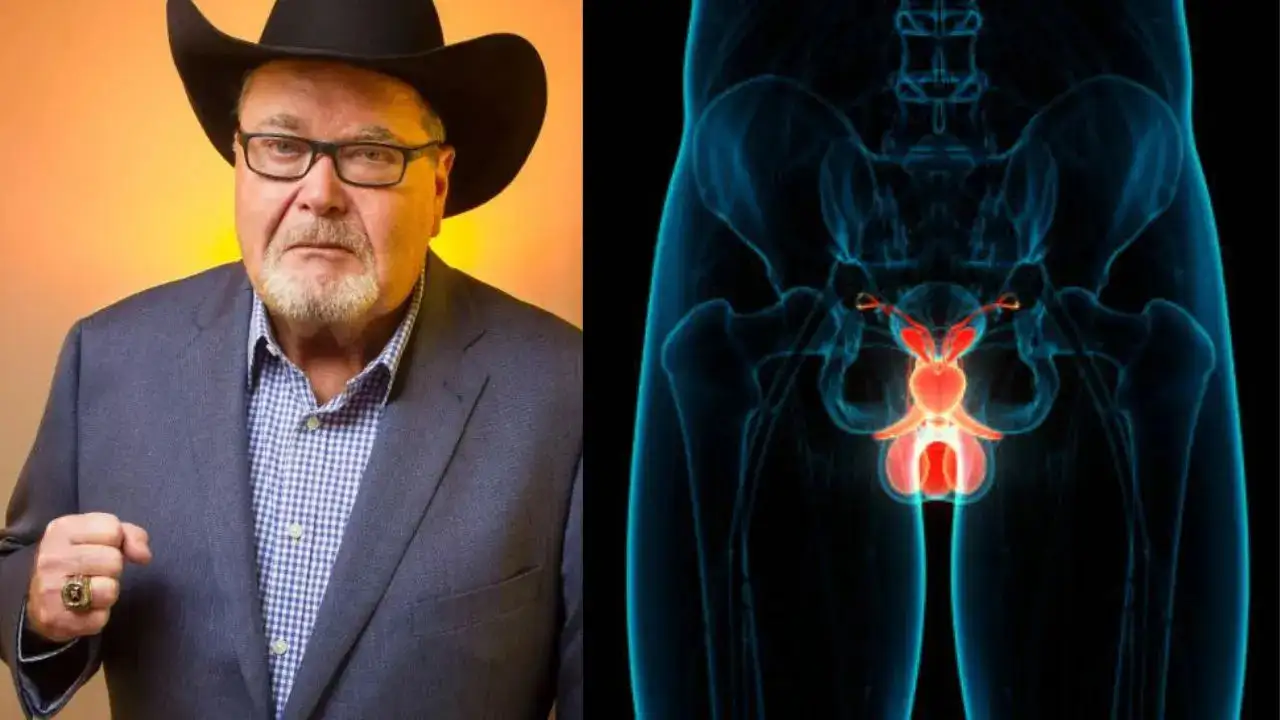
The 73-year-old wrestling legend is scheduled for surgery next week for treatment (Pic: Instagram/iStock)
WWE Hall of Famer Jim Ross has been diagnosed with colon cancer. The 73-year-old wrestling legend is scheduled for surgery next week for treatment. “Diagnosed this week with colon cancer,” Ross wrote on X. “Surgery is being scheduled in the next week or two. I appreciate your concern and support.”
It is the second time that Ross, who also has Bell’s palsy, has been diagnosed with cancer in recent years. In 2021, Ross announced that he had skin cancer, which was later treated. “Waiting on the radiologist study to determine treatment,” Ross wrote on the social media site, along with a photo of his ankle in a bandage at the time. “Likely radiation.”
What is prostate cancer?
According to experts, prostate cancer, which develops in the prostate—a small walnut-shaped gland located below the bladder and in front of the rectum in males—can be life-threatening. This tiny gland secretes fluid that mixes with semen, keeping sperm healthy for conception and pregnancy.
Prostate cancer is a serious, damaging disease. Doctors say now most people with prostate cancer get diagnosed before it spreads beyond their prostate gland. Treatment at this stage often eliminates the cancer. Experts say that for those diagnosed with prostate cancer, it is mostly an adenocarcinoma, which begins in the cells of glands, like your prostate, that secrete fluid. Rarely, prostate cancer forms from other types of cells.
Signs and symptoms of prostate cancer
Early-stage prostate cancer rarely causes symptoms. However, you may see many signs that occur as the disease progresses. A few of these are:
- Frequent, sometimes urgent, need to pee, especially at night
- Weak urine flow or flow that starts and stops
- Pain or burning when you pee
- Loss of bladder control or urinary incontinence
- Loss of bowel control
- Painful ejaculation and erectile dysfunction
- Blood in semen or pee
- Pain in your low back, hip, or chest
What causes prostate cancer?
While doctors are not sure what causes cells in your prostate to become cancer cells, however, as with cancer in general, prostate cancer forms when cells divide faster than usual. While normal cells eventually die, cancer cells do not. Instead, they multiply and grow into a tumour. As the cells continue to multiply, parts of the tumour can break off and spread to other parts of your body.
According to doctors, prostate cancer usually grows slowly, and most tumours are diagnosed before the cancer has spread beyond your prostate. Prostate cancer is highly treatable at this stage. A few common risk factors include:
Age
Your risk increases as you get older, and you are more likely to get diagnosed if you are over 50 years of age.
Race and ethnicity
You are at greater risk if you are Black or of African ancestry.
Family history of prostate cancer
Doctors say you are two to three times more likely to get prostate cancer if a close family member has it.
Genetics
Most people with prostate cancer are at a greater risk if they have Lynch syndrome or an inherited mutation associated with increased breast cancer risk.
A few studies have also identified other prostate cancer risk factors, which include:
- Smoking
- Prostatitis
- Having a BMI of more than 30, or being obese
- Sexually transmitted infections and diseases
